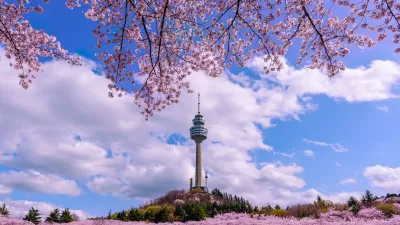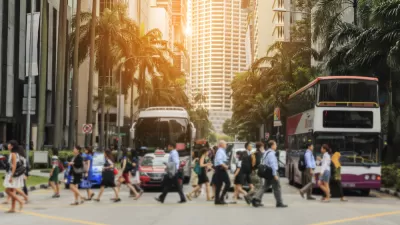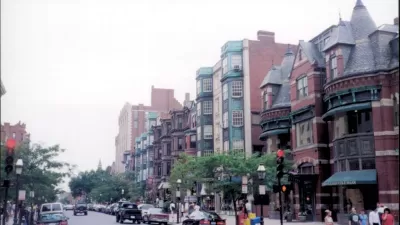The lives of Seoul's poorest residents in squalid below-ground housing are brought out of the shadows in the film "Parasite."

The film "Parasite," winner of numerous Oscars earlier this year, highlighted the extreme economic inequality in South Korea and the plight of Seoul’s urban poor, including the housing challenges they face.
"The fictionalized story reflects the lives of Seoul’s so-called dirt spoons, the urban poor, many of whom live in semi-basements in the congested city, where living high and dry — in apartment towers and away from the honking, yelling and odoriferous squalor of down below — symbolizes the wealth and status of the gold-spoon class," writes Choe Sang-Hun.
The city’s richest residents are segregated not just geographically in wealthy neighborhoods, notes Choe. "In Seoul, wealth is measured by how high you live, said Kim Nam-sik, a real estate agent in Seoul’s quiet Seongbuk district, home to dozens of foreign ambassadors’ residences and where the rich family of 'Parasite' lives."
People living in the basement homes — called "banjihas" — contend with street-level noise and dirt and substandard living conditions. "They remain largely invisible unless you explore back alleys at night and see their lit windows below street level. Many live, literally, in the long shadows of shopping and apartment towers," says Choe.
FULL STORY: For Seoul’s Poor, Class Strife in ‘Parasite’ Is Daily Reality

Planetizen Federal Action Tracker
A weekly monitor of how Trump’s orders and actions are impacting planners and planning in America.

Congressman Proposes Bill to Rename DC Metro “Trump Train”
The Make Autorail Great Again Act would withhold federal funding to the system until the Washington Metropolitan Area Transit Authority (WMATA), rebrands as the Washington Metropolitan Authority for Greater Access (WMAGA).

The Simple Legislative Tool Transforming Vacant Downtowns
In California, Michigan and Georgia, an easy win is bringing dollars — and delight — back to city centers.

The States Losing Rural Delivery Rooms at an Alarming Pace
In some states, as few as 9% of rural hospitals still deliver babies. As a result, rising pre-term births, no adequate pre-term care and "harrowing" close calls are a growing reality.

The Small South Asian Republic Going all in on EVs
Thanks to one simple policy change less than five years ago, 65% of new cars in this Himalayan country are now electric.

DC Backpedals on Bike Lane Protection, Swaps Barriers for Paint
Citing aesthetic concerns, the city is removing the concrete barriers and flexposts that once separated Arizona Avenue cyclists from motor vehicles.
Urban Design for Planners 1: Software Tools
This six-course series explores essential urban design concepts using open source software and equips planners with the tools they need to participate fully in the urban design process.
Planning for Universal Design
Learn the tools for implementing Universal Design in planning regulations.
Smith Gee Studio
City of Charlotte
City of Camden Redevelopment Agency
City of Astoria
Transportation Research & Education Center (TREC) at Portland State University
US High Speed Rail Association
City of Camden Redevelopment Agency
Municipality of Princeton (NJ)





























